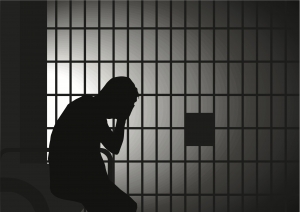Towing the Barbed Line Between Slave and Prisoner

August 30, 2018
According to the United States Bureau of Justice Statistics in 2016 an estimated 6,613,500 persons are held in U.S. adult correctional systems. The United States has the highest prison population rate, 716 per 100,000 people, and holds the largest population of incarcerated individuals than any other nation. There are not enough resources nor funds to support these prodigious statistics and more importantly, these individuals.
It may be difficult to understand why those imprisoned would be insistent on better conditions and better pay; especially when those on the outside are experiencing wage inequality themselves. Even so, prisoners in 17 states began protesting this week and many are deeming the United States Prison System “modern-day slavery”. Looking at the foundation of the institution of imprisonment, the benefits that mass incarceration and prison labor have for the free-market and the government, and what it means to be a prisoner it is easier to comprehend the outrage.
A debate arises upon the necessity for paying prisoners in the first place. Who are they to demand improved pay, improved rights in the face of the law under which they chose not to abide? It seems that, to many, the government is doing more than enough by throwing a couple cents into the khaki pockets of the inmates. This argument fails to recognize the contributions of the convicted to society. Prison labor is an enticing, cost-effective alternative, and a solution to many economic issues, the government cuts corners by keeping jobs on the home-front and behind bars. The prisoners are protesting because they recognize the one-sided convenience of the situation for just about everybody but them. Mass incarceration looks appealing from a numbers standpoint, more barely-paid laborers and the standard of prison-living has nowhere to go but down.
Black males surpass the likes of white and Hispanic men to make up the majority, 37% of the prison population. There is a dense racial politics to the justice system and it is this sort of injustice that many prisoners and prison activists wish to shine a light on with these protests. The simple truth of the matter is, that this is not entirely a racial issue but an issue of wage and quality of living, the mumblings of ‘modern day slavery’ arise and once we make correlations to slavery, it becomes a racial issue in part.
To be considered a slave, one must be forced to obey an enforcer and work incredibly hard with limited to no rights. It seems as though the rights of inmates are rapidly depleting as is their pay. To be a prisoner one must be trapped as is the same for a slave. There arises a fine line in this debate. Slave or prisoner? Working begrudgingly hard to retain rights they will never again be entitled to. Then again, what did they do to end up behind steel bars?

